ERC laureates
The European Research Council (ERC) awards grants to excellent researchers, thus stimulating groundbreaking research in Europe.
ERC Starting Grants support talented young researchers in setting up a research team and starting an independent research project.
Consolidator Grants are meant for scientists who want to consolidate their independence by establishing a research team or who have recently created an independent, excellent research team and want to strengthen it.
The Advanced Grants are open to established academics of all nationalities and all ages. An ERC grant enables these researchers to start bold, groundbreaking research and thus open up new avenues in their field of study. The Proof of Concept grants help ERC laureates link their research to the market.
More information and contact
-
For questions on ERC Grants, please contact Marjolein Stern
ERC Grants 2024
Consolidator Grants

Martin de Borst
Martin de Borst (Faculty of Medical Sciences) is Professor of nephrology at the UMCG. He wants to develop a new method to diagnose kidney damage earlier. 'The early stages of kidney disease are without symptoms,' said De Borst. In his ERC project, De Borst will use AI to pinpoint a new single marker that better reflects the degree of kidney damage, than creatine which is currently used. To do so, De Borst will use already excisting samples that are waiting to be used for research. He will collaborate with colleagues at the Mayo Clinic (USA) and the Karolinska Institute (Sweden). This analysis can lead to earlier identification of kidney damage which can prevent suffering for patients. The new marker is meant to be used in combination with already existing methods.
Read more about Martin de Borst's research.
ERC Grants 2023
Advanced Grants
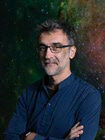
Filippo Fraternali
Filippo Fraternali (Faculty of Science and Engineering) studies galaxy formation and evolution from the early Universe to present-day galaxies, including the Milky Way. His particular focus is on the role of gas, which constitutes the vast majority of the ordinary matter in the Universe. In his ERC project, Fraternali aims to precisely determine the properties of gas flows in and out of galaxies across cosmic time and explain their role in galaxy formation and evolution. To achieve this goal, he will use a combination of innovative data analysis and theoretical investigations. Data from state-of-the-art astronomical facilities like ALMA and the JWST will be used together and in synergy with newly designed theoretical models. The final goal will be to significantly improve our current models of galaxy formation.
Read more about Fraternali's research
Consolidator Grants

Clemens Mayer
Clemens Mayer was awarded a Consolidator Grant for the project ContiZymes - Continuous Enzyme Evolution - Solving Bottlenecks in Enzyme Engineering to Design Next-Generation Biocatalysts
With his project, Clemens Mayer will establish a continuous evolution approach, making it possible to autonomously engineer efficient enzymes in a matter of days rather than months or years. This will accelerate the search for enzymes that can provide critical building blocks for the pharmaceutical industries, but also elucidate the sequence-structure-function relationships of these biocatalysts. Moreover, the data generated in the process will make it possible to train and improve machine-learning algorithms for the on-demand prediction of efficient enzymes.
Read more about the Consolidator Grant for Clemens Mayer

Danny Incarnato
Danny Incarnato (Faculty of Science Engineering) was awarded a Consolidator Grant for his project RNAStrEnD: RNA Structure Ensemble Dynamics in living cells
Incarnato will study the role of ribonucleic acid (RNA) molecules in the cell. The aim of the research is to better understand the structure-function relationship of RNA molecules. Particularly, Incarnato and his team will investigate how changes in the structure of an RNA molecule are triggered and how these changes affect the regulation of cellular processes.
Read more about the Consolidator Grant for Danny Incarnato

Ana Guerberof Arenas
Ana Guerberof Arenas (Faculty of Arts) received the grant for the INCREC project that focuses on the creative translation process. AI and, more specifically, machine translation (MT) has drastically changed the public perception of translation and the possibilities of this technology. A remarkably high percentage of the content we read and see is translated, especially in our multilingual and global society. It is therefore crucial to look at the role that human creativity plays in understanding the possibilities, as well as the limitations machine translation in a literary and audio-visual content has.
Read more about Arenas' research

Tina Kretschmer
Tina Kretschmer (Faculty of Behavioural and Social Sciences) has received the grant for the project PAR2: A new science of parenthood, which focuses on the question of how people change when they become parents. Social development describes stability and changes in social skills–such as understanding and regulating one’s own emotions, being empathetic to others’ emotions–and social behaviour, i.e. any behaviour that affects another person. There is a lot of knowledge about social development in childhood and adolescence but little about what happens in adulthood.
Read more about Kretschmer's research
Starting Grants

Inge Holtman
Inge Holtman (Faculty of Medical Sciences (UMCG)) , Assistant Professor in Neurogenomics and Rosalind Franklin Fellow, has received the ERC Starting grant. Dr Holtman her group will establish novel research lines into the cellular and molecular features associated with three major mental illnesses: bipolar disorder, schizophrenia, and major depressive disorder.
This work will build upon the Netherlands Neurogenetics Database, an ongoing collaboration between her research group and the Netherlands Brain Bank, and will aim to establish brain organoids models for psychiatric disorders.

Yuliya Hilevych
Yulia Hilevych and her team will research the social history of depopulation in Europe. This research analyzes the connection between the decline in wealth and population, making it the first of its kind. DEPOP will shed a new light on the histories of ‘stayers’ in rural and urban communities, and on their welfare in health and care sectors by paying close attention to the role of gender, class, age, ability, and ethnicity/race. Hilevych will focus on the North-West-East comparison: Finland – the Netherlands – Ukraine.
By doing so, DEPOP will illuminate regional depopulation as a potent example of a slow burn crisis – occurring over extended periods of time. The historical findings will help to better understand how and why some communities have been more resilient to the slow burn crisis of depopulation.

Geoff Hobbis
Is economic diversity possible in the digital age? If so, to what extent and what does it look like? In his ERC project ‘DOE’ (Digitizing Other Economies), Geoffrey Hobbis will explore these questions based on cross-cultural comparative research among longstanding 'other' economies—hunter-gatherers, pastoralists, horticulturalists and non-industrial agriculturalists. Members of these economies increasingly rely on digital technologies, in particular smartphones, in their lives. Some think that these new technologies will facilitate assimilation into industrial-capitalism. After all, most digital technologies are designed according to, and for, industrial-capitalist interests, needs and values. DOE challenges this simplistic, deterministic perspective. Instead, it sets out to showcase the diversity of economic adaptations in the digital age.
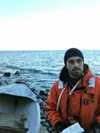
Sean Desjardins
Foxe Basin TRACES (Tracking Long-term Resilience in Arctic Sociocultural-Ecological Systems) is a five-year, interdisciplinary project aiming to better understand the differences between Western-scientific understandings of sustainability/conservation, and time-honored Inuit traditional knowledge about environmental health and human/nonhuman animal relationships. This will be accomplished through research on (1) modern Inuit subsistence hunting (of, for example, seals, walruses and caribou), (2) the archaeology of past harvesting (from ca. AD 1300 to present), (3) Inuit traditional knowledge about hunting and broader relationships with animals, and (4) circumpolar governmental policy on the regulation of a wide-range of animal-related activities, such as hunting, sewing and carving. Based at the Arctic Centre, Groningen Institute of Archaeology, Desjardins's TRACES team will carry out the research alongside Inuit knowledge- and rights-holders in the biogeographically-dynamic Foxe Basin region of Nunavut, Inuit Nunangat (the traditional lands, waters and ices of what is now Canada).
ERC Grants 2022
Advanced Grants
In April 2022 the European Research Council has awarded ERC Advanced Grants to three UG researchers: Prof. Maria Antonietta Loi, Prof. Bart van Wees and Prof. Siewert-Jan Marrink.
Newsarticle about the 2022 Advanced Grants

Maria Antonietta Loi
In her ERC work Maria Antonietta Loi (Faculty of Science and Engineering) will create metamaterials (i.e. designed materials that do not occur in nature) that can be tuned to receive or emit light at specific wavelengths for different applications. Loi will combine quantum dots and quantum wells based on perovskites. The final objective is to produce new infrared photodetectors and visible light emitting diodes of superior performance levels.
Read more about Loi's research

Bart van Wees
Bart van Wees (Faculty of Science and Engineering) will work on so-called magnons in his ERC project. A magnon is a spin wave in non-conductive magnetic material. This is a disruption in the magnetization which spreads like a ‘wave’ in a full stadium: electrons in the material pass the spin on to their neighbours before falling back into their original position. With this form of transport only the spin moves, and the electrons do not travel around. This means heat does not develop and the transport requires very little energy.
The ERC project will open a regime that has not been explored before. Van Wees will study interactions between spins, magnons and phonons (a particle-like elastic excitation, also a quantum phenomenon) in 2D systems. Ultimately, this will provide new strategies for low power information technology including heat management.
Read more about Van Wees' research
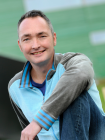
Siewert-Jan Marrink
Siewert-Jan Marrink (Faculty of Science and Engineering) aims to set a large step towards the ultimate goal to simulate a cell organelle and even an entire cell, in his ERC project This will require challenging methodological innovations at the crossroads of biology, physics, and chemistry. To simulate a realistic biological structure, the Martini model must be able to handle interactions between a large variety of biomolecules. The computational microscope must be able to zoom in on details and zoom out to ‘see’ the entire object, which requires simulations at very different scales. Marrink is confident that he will pull this off. One of the aims stated in his ERC project is to simulate − for the first time − a complete cell at molecular resolution: the JCVI- syn3A minimal cell derived from mycobacteria.
Read more about Marrink's research
Consolidator Grants
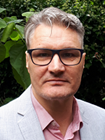
Michael Dee
Michael Dee’s (Faculty of Science and Engineering) project is entitled CONTACT (Chronology of the Norse Trans-Atlantic Colonies and Territories). It builds on the research strands developed during his ERC Starting Grant (ECHOES), especially the solar-storm dating technique his group have been pioneering. CONTACT primarily investigates where, when and for how long Europeans went to the Americas prior to Columbus, who they may have encountered, and whether there were any lasting impacts of these first transatlantic connections.
Read more on the Consolidator Grant for Dee
In October 2021, Dee and his colleagues made global headlines after discovering that Europeans were present on the American continent in 1021 AD.

Peter Van der Meer
Peter van der Meer (Faculty of Medical Sciences (UMCG)) is a cardiologist working on clinical and translational research topics to bridge the gap between bench and bedside. His work focuses on understanding the susceptibility to develop heart failure and exploring novel treatment targets and therapies in heart failure. For this, he uses 3D-tissue and stem cells, so to understand how heart failure happens. Through this, he wants to develop better treatment for patients suffering from heart failure.
Read more about the Consolidator Grant for Van der Meer
Starting Grants

Marcos Guimaraes
In his ERC project, Marcos Guimaraes (Faculty of Science and Engineering) will use atomically-thin two-dimensional materials to combine highly efficient magnetic devices with optical communication. The fast development of modern information technology requires smaller devices consuming less energy. Magnetism provides an excellent route for energy-efficient devices, such as hard-disk drives, but they are often slow. Moreover, magnetic information has to be converted into electric currents for it to be transmitted, leading to more power consumption.
Specifically, Guimaraes aims to integrate magnetic devices with a laser that can convert magnetic information into optical information, i.e. light polarization. This project will pave the way for new generations of information technologies, addressing fundamental aspects along the way.
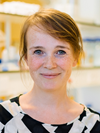
Marthe Walvoort
In the ‘Sticky Sugars’ project, Marthe Walvoort (Faculty of Science and Engineering) will investigate the impact of bacterial glycoproteins on the process of bacterial adhesion and infection. Using the power of chemistry and enzymes, she will develop novel techniques to directly visualize the sugars on the outside of bacteria, and in collaboration with researchers from the Groningen Biomolecular Sciences and Biotechnology Institute (GBB) and the University Medical Center Groningen (UMCG), she will unravel the contribution of these sugars to bacterial infection. This project will inspire novel antibacterial therapies based on attacking bacterial sugars.

Julia Kamenz
Life on earth is rhythmic—from our heartbeat, to the circadian day-night cycle, to the oscillations in animal populations. But what actually drives these clock-like behaviours? In her ERC project, Julia Kamenz (Faculty of Science and Engineering) will dissect the molecular mechanism of one of the most fundamental biological clocks: the cell cycle clock, which underlies and drives cell divisions. Like a watchmaker, Kamenz and her team plan to isolate the individual parts of the cell cycle machinery and systematically assemble them into a ‘ticking’ cell cycle clock. This approach will allow the researchers to reveal the intricate interactions between each of the parts and provide novel insights into the biochemistry of cell division.

Sandy Schmidt
In her ERC project ‘RECNNSTRCT’, Sandy Schmidt (Faculty of Science and Engineering) will reconstruct enzymes for novel nitrogen-nitrogen bond-forming chemistry. Compounds containing nitrogen-nitrogen (N-N) bonds are highly important and frequently found in diverse pharmaceuticals, dyes, agrochemicals, synthetic materials, and cosmetics. However, traditional chemical procedures to synthesize these N-N bond-containing compounds are often difficult to realize, costly, and environmentally unfriendly.
Schmidt’s ERC project will address this challenge by developing novel enzymes that can form these important N-N bond-containing compounds in a more sustainable way, while tackling reactions that are difficult to realize by traditional chemical approaches and currently not feasible by enzyme catalysis.
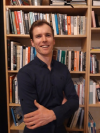
Robert Prey
In the last two decades, social media channels and streaming services such as Spotify have drastically changed the music industry. Artists use these platforms to reach their audience and these platforms turned out to be the best way for many artists during the COVID-19 pandemic to draw attention to their music.
In his research project ‘PlatforMuse’, Robert Prey (Faculty of Arts) will research how social media and streaming services influence the creativity, identity, and working conditions of musicians, and what kind of influence musicians in turn have on the development of these platforms. The project will show how culture in general, and the music industry specifically, is influenced by the ‘platformization’ of our society.
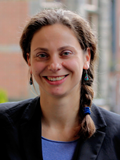
Bettina Reitz-Joosse
In her ERC-Project Bettina Reitz-Joosse (Faculty of Arts) will work on the project FACERE: How did the Romans respond to the objects and the buildings surrounding them? FACERE (Latin for ‘making’) proposes a new way of approaching this question, by studying Roman ideas about processes of manual creation.
This research is concerned with how the inhabitants of the Roman Empire thought about processes of making. To answer these questions, a team of researchers under her direction will analyze the ancient Roman discourse on making. By studying literary texts in Greek and Latin and Roman visual culture, the researchers can map out how Romans thought, felt, and talked about creating objects. In doing so, FACERE will open up new ways of understanding of Roman attitudes towards the material world.
Read more about Bettina Reitz-Joosse and her research.

Federico Pianzola
Federico Pianzola (Faculty of Arts) associate professor of computational humanities, has been awarded an ERC Starting Grant for his project GOLEM: Graphs and Ontologies for Literary Evolution Models. The €1.2 million European grant will allow him to spend the next five years conducting large-scale research on changes in how people write fiction and how it affects readers.
Pianzola: "What elements in a story are meaningful to the reader? What makes a story get read, and what do readers value in a story? The information we collect with this research makes it possible, with the help of computer models, to find answers to these kinds of questions. We can thus develop a methodology that we can also apply to books from other periods in history. In this way, we can study the evolution of fiction over the centuries, and gain unprecedented insight into something as old as humanity itself: storytelling."
Read more about the research by Federico Pianzola
ERC Grants 2021
Starting Grants
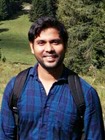
Ajay Kottapalli
Ajay Kottapalli’s (Faculty of Science and Engineering) research focuses on nature-inspired micro/nano sensors, biomimetic materials and sensors, micro/nanoelectromechanical systems (MEMS/NEMS), nanofabrication, flexible electronics, two-dimensional sensing materials and biomedical sensors. His group is implementing biological sensory designs into artificial MEMS/NEMS sensors by mimicking the sensing principle, morphology, material properties and functionality. These are integrated using novel soft polymer materials and two-dimensional sensing materials to fabricate sensors with ultra-sensitive sensing abilities. Various applications of such sensors in biomedical sensing and healthcare devices are being explored, in the pursuit for preventive maintenance, at-home healthcare and safe clinical practices. Read more.

Tessa Quax
Tessa Quax (Faculty of Science and Engineering) will receive 1.5 million euros for her research 'Archaeal Virology: unravelling the mechanisms of interviral warfare'. Her project in short: Archaea are ubiquitous microorganisms that are found in numerous surroundings ranging from extreme environments to the ocean and the human gut and skin. As viruses are the major predator of archaea, they shape archaeal communities.
This project will visualize the mechanisms that viruses use to fight each other to gain access to host cells. This knowledge of viral mechanisms can, for example, be applied to control archaeal populations to increase human gut health or to reduce the production of the harmful greenhouse gas methane by gut archaea of ruminants. Read more.

Tamer Nawar
Tamer Nawar (Faculty of Philosophy) receives 1.5 million euros for his research 'Philosophical conceptions of truth in ancient and medieval philosophy'. This project will offer the first focused and systematic examination of philosophical conceptions of truth in ancient and medieval philosophy. It will examine the origins, motivations, and challenges faced by conceptions of truth in this period and how these challenges led to the development of alternative theories of truth. Read more.

Iva Pesa
For her research 'AFREXTRACT Environmental histories of resource extraction in Africa: Understanding cultural and political responses to environmental transformation' Iva Pesa (Faculty of Arts) receives 1.5 million euros. Her project in short: Resource extraction has caused devastating effects all over the world. AFREXTRACT looks at three emblematic localities of large-scale industrial resource extraction in sub-Saharan Africa, namely oil drilling in Nigeria, copper mining in Zambia and gold mining in South Africa.
Through a comparative environmental history approach, the project asks why the environmental changes caused by mining and oil drilling elicited such varied responses in these three localities. Using literature and song and paying particular attention to forms of popular political mobilisation, the project sheds light on the lived experiences of environmental transformation in Africa. Read more.
Two ASTRON staff members closely associated with the RUG's Kapteyn Institute also received an ERC Starting Grant: Brian Hare and Harish Vedantham.

Brian Hare
Brian Hare (Faculty of Science and Engineering) will lead the project LIFT (Lightning corona Imaging From a radio Telescope), which will make use of the LOFAR radio telescope to create unprecedented images of lightning that are precise and detailed enough to allow for direct comparison with state-of-the-art lightning models. Read more.
Harish Vedantham
Harish Vedantham (Faculty of Science and Engineering) has been awarded an ERC Starting Grant for his project STORM- CHASER to detect space weather events and magnetic fields around exoplanets for the first time. Space weather is caused by a star ejecting huge masses of plasma and high-energy particles that can be detrimental to planetary atmospheres. Read more.
ERC Grants 2020
Advanced Grants

Gerard Roelfes
Gerard Roelfes (Faculty of Science and Engineering) researcher at the Stratingh Institute for Chemistry has been awarded an ERC Advanced Grant of EUR 2.5 million for his project ‘Designer enzymes featuring unnatural amino acids as catalytic residue’ (DENZUAC).
In his project, Prof. Roelfes aims to create new ‘designer’ enzymes that feature unnatural amino acids as reactive group.
More information on Roelfes research

Léon Koopmans
Léon Koopmans (Faculty of Science and Engineering) researcher, at the Kapteyn Astronomical Institute receives an ERC Advanced Grant worth EUR 3.5 million for his project ‘CoDEX The Final 21 cm Cosmology Frontier’.
Of this, EUR 1 million will be spent on a new computer system for data processing and storage. This project aims to detect extremely faint radio signals of neutral hydrogen from the first billion years of our universe.
Read more about Koopmans'research
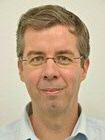
Erwin de Blok
Erwin de Blok (Faculty of Science and Engineering), Senior Astronomer at ASTRON and associate professor at the Kapteyn Astronomical Institute, has been awarded an ERC Advanced Grant worth EUR 2.5 million for his project ‘MeerGas: Finding the Origin of Gas in Galaxies with MeerKAT’.
With this project, Prof. De Blok aims to find the source of the neutral hydrogen gas in galaxies. Prof. De Blok and his research group will use extremely sensitive radio observations of nearby galaxies, made with the new MeerKAT radio telescope in South Africa to detect the accreting gas.
Read more about De Blok's research
Consolidator Grants

Jingyuan Fu
Jingyuan Fu (Facuty of Medical Sciences) associate professor at the department of Genetics, will use her Consolidor Grant to investigate whether the effectiveness of medicines can be improved by making adjustments to the whole of micro-organisms in the gastrointestinal system (intestinal microbiome).
More information about her research
Starting Grants

Michel Vols
To what extent do national and international legislation and human rights laws protect people from the serious impact of a measure like being evicted from their homes? Professor of Public Order Law Michel Vols (Faculty of Law) has been awarded an ERC Starting Grant to carry out research into this subject.
Read more on Vols' research
ERC Grants 2019
Consolidator Grants

Geert van den Bogaart
Geert van den Bogaart (Faculty of Science and Engineering)has been professor of Molecular Immunology and Microbiology at the UG since 2018.
With the Consolidator Grant, Van den Bogaart would like to research why immune responses against pathogens are made selectively in cases of infection, while autoimmune diseases are prevented.
More information about his research
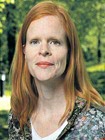
Marleen Kamperman
Marleen Kamperman (Faculty of Science and Engineering) has been professor in Polymer Science at the Zernike Institute for Advanced Materials (ZIAM) since 2018.
With the Consolidator Grant, Kamperman wants to develop new materials by using environmentally friendly processes, such as those that can be found in nature when looking at spider webs and the threads of the velvet worm. She hopes to simulate these processes in the laboratory.
More information about her research
Starting Grants

Cristóbal Bertoglio
Cristóbal Bertoglio (Faculty of Science and Engineering) has been awarded an ERC Starting Grant for hi-fi cardiovascular modeling from super-fast MRI. Bertoglio’s research project called CardioZoom, aims to make possible quantitative MRIs of thin cardiovascular structures at very short MRI scan times.

Giulia Mancini
Giulia Fulvia Mancini (Faculty of Science and Engineering) has been awarded a Starting Grant for her project entitled 'Advanced EUV/soft X-ray microscopy in the ultrafast regime: imaging functionality of nanomaterials across length scales' (ULTRAIMAGE). ULTRAIMAGE tackles the need for novel strategies in the characterization of functional nanomaterials, through the study of their fundamental structure-property relationships.

Cyril Moers
Cyril Moers (Faculty of Medical Sciences (UMCG)) will be conducting research in the coming years into the use of perfusion machines with which donor kidneys can be tested. The insights from the research should lead to nephrologists and surgeons being able to make the right choice more often in the future when it comes to accepting or rejecting donor kidneys.
| Last modified: | 21 February 2024 12.34 p.m. |
